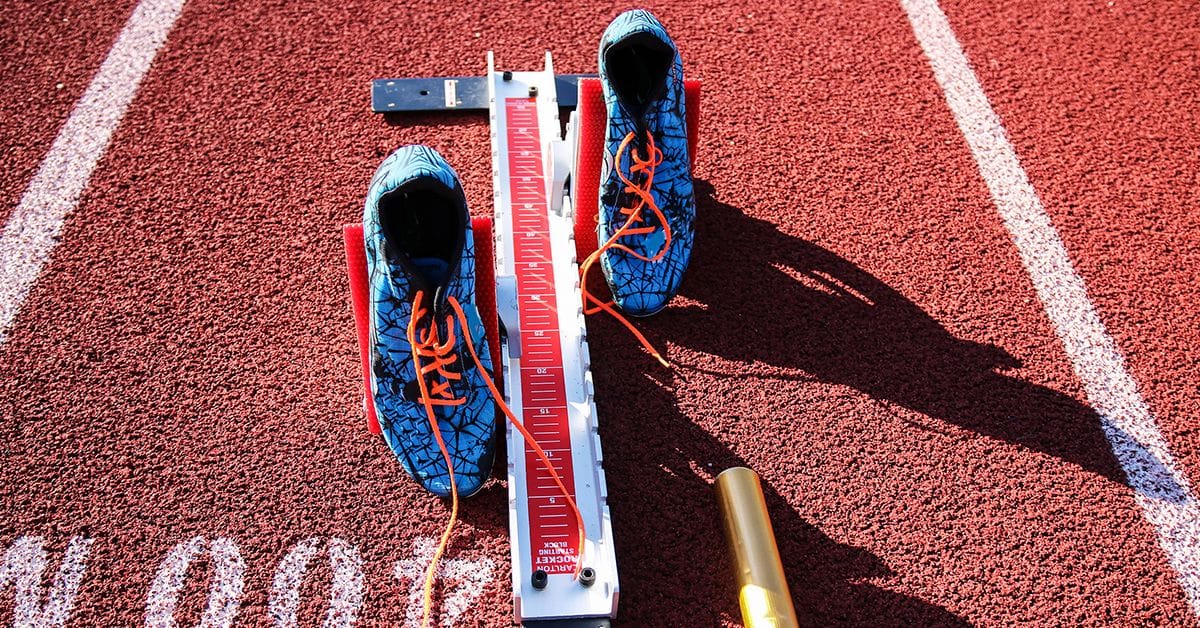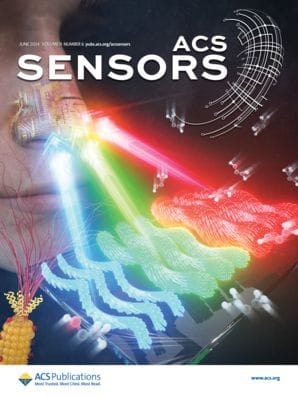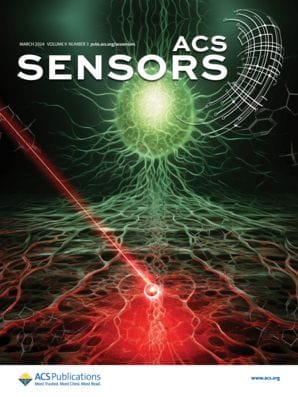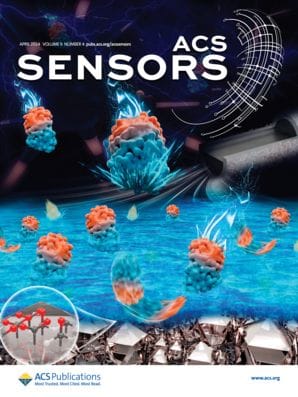Get ready for the 2024 Summer Olympics with this roundup of sports-related research, including advances in self-powered fitness trackers, innovative mouthguards, sweat analyzers, and sports supplements.

Excited about the Summer Olympics, but unsure how to spend the days leading up to the big event on July 26? Us, too! Here are four sports-related articles published in ACS journals to keep you engaged while waiting for your favorite race to start.
Self-powered fitness tracker
Research published in ACS Sensors outlines a fabric-based prototype that can detect movement. The sensor, which could one day be used in personal devices, like fitness trackers, is powered by the friction generated by the wearer’s movement. The team says the sensor — a triboelectric nanogenerator — doesn’t contain the toxic materials found inside traditional rechargeable batteries and can be integrated into different equipment, like a badminton racket to monitor hitting force or a yoga mat to track whether poses are performed correctly.

A Human Friendly Self-Assembled Triboelectric Sensor for Multifunctional Tactile Sensing
DOI: 10.1021/acssensors.4c00115
Mouthguards that are less of a mouthful
While these dental devices are effective at preventing injury, some athletes may forgo wearing them because the material is uncomfortably thick. So, to create thinner sports mouthguards, a team investigated a shear-stiffening material that becomes harder when hit. The authors explain in ACS Applied Biomaterials that their slimmer mouthguards provide enhanced shock absorption with less material than traditional mouthguards and can be made with existing fabrication methods.

A Shear-Stiffening Mouthguard with Excellent Shock Absorption Capability and Remoldability via a Dynamic Dual Network
DOI: 10.1021/acsabm.3c01134
A stick-on sweat analyzer
Using moisture-wicking membranes, a low-tech sensor can simultaneously measure pH, urea and calcium in the wearer’s sweat by changing color. Researchers completed successful demonstrations of the sensor with human subjects running for 20 minutes in different temperatures and humidities. The stick-on, stretchable sweat sensor could be used for health and fitness monitoring, say the researchers in ACS Sensors.

Stretchable and Sweat-Wicking Patch for Skin-Attached Colorimetric Analysis of Sweat Biomarkers
DOI: 10.1021/acssensors.3c02673
Machine learning could find sports supplements
Traditionally, high-throughput testing is used to screen for compounds that might work well in sports supplements, but the process can be time-consuming and expensive. Now, researchers report in ACS Omega how computer algorithms efficiently screened herbal medicines for active components that could be used in supplements. Cell-based assays validated the accuracy of the machine learning method, but the team says further research is needed to evaluate the compounds’ safety in humans.

Identification of Active Components for Sports Supplements: Machine Learning-Driven Classification and Cell-Based Validation
DOI: 10.1021/acsomega.3c07395
This article roundup is brought to you by the ACS Science Communications team—learn more below.
